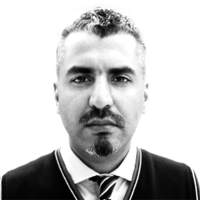LONDON — There really is no other way to put this. Free thinkers in Bangladesh are being serially hacked to death in their homes. An infamous hit list appeared in 2013 naming 84 “atheist bloggers.” By the end of 2015 there had been seven such murders across the country, and, tragically, this past week alone claimed three more victims.
Rezaul Karim Siddique, a professor of English at Rajshahi University in the country’s northwest, was set upon outside his house as he left for work. Siddique founded a literary magazine called Kamolgandhar and wanted to start a music school in his village as a way to involve his students in extra-curricular activities. But instead he died where he fell, succumbing to severe wounds after he was hacked in the back of the neck by cowards on a passing motorbike.
Only two days later, U.S. embassy employee Xulhaz Mannan, who was one of Bangladesh’s top gay-rights activists and editor of the country’s only LGBT magazine, Roopbaan, was murdered by machete in his home. His friend, another gay rights activist Tanay Mojumdar was also killed. Xulhaz and Tanay were behind the annual “Rainbow Rally,” held April 14 on the Bengali New Year.
The so-called Islamic State in Bangladesh has claimed responsibility for the killing of Professor Siddique. Its media mouthpiece, called Amaq, stated ISIS fighters “assassinated a university professor for calling to atheism in the city of Rajshahi in Bangladesh.”
And despite the Bangladeshi government’s rejection of this claim, ISIS English-language magazine Dabiq carried an interview earlier this month with their purported leader in Bangladesh, Abu Ibrahim al-Hanif, who claimed that the country had become its base of operations in South Asia.
Whether or not ISIS was behind this attack is secondary. The effect is the same. Jihadist terrorists are systematically hunting down leading free thinkers in Bangladesh—one by one—and hacking them to death.
It is “open season” on atheists in Bangladesh.
And though Professor Siddique’s daughter, Rizwana Hasin, has said that her father was not in fact an atheist, among jihadists that definition is incredibly broad.
Anyone who advocates liberal secularism, free inquiry, arts, and culture, is considered an “atheist” or “apostate.” Anyone who “supports” or “sides” with atheists, supports freedom of religion as well as from religion, and anyone who maintains the primacy of free speech, including and especially the human right to “blaspheme,” is deemed an atheist, whether they declare themselves to be or not.
Atheists are among the most discriminated-against groups in the world at present, and the most persecuted minority-within-a-minority among Muslims.
Imagine what it must be like for atheists living in Muslim-majority countries where such a belief is a criminal offense.
So beleaguered is this minority that you can be put to death for atheism in no less than 13 countries around the world. In 39 countries the law mandates a prison sentence for blasphemy, and six of these are Western countries.
Saudi Arabia has even declared being an atheist a terrorist offense. Nobel Prize Nominee and Amnesty International Prisoner of Conscience Raif Badawi still languishes in jail there “accused” of atheism.
Meanwhile Bangladesh’s best-known blogger, Imran Sarker—who led major secular protests in Dhaka against Islamist leaders in 2013—said that he had received a death threat on Sunday from a U.K. number saying he would be killed “very soon.”
If a society is to be judged by how it treats its weakest, its voiceless, and most downtrodden, then let that lens focus truly on these minorities-within-minorites who risk everything to question the prevailing conservative dogma within their own communities. For if liberalism is to mean anything at all, it is duty bound to support without hesitation the dissenting individual over the group, the heretic over the orthodox, innovation over stagnation, and free speech over offense.
Charb, the murdered editor of Charlie Hebdo magazine, wrote in his posthumously published manifesto: “God is a super-surveillance camera to which no one seriously objects. Yet, it was put in place without any elected official or citizen having been consulted.”
By visibly killing off dissenters in such a public way, extremists seek to scare us all into silence. The targeting starts with atheists and “blasphemers,” but almost always moves on to the sexually diverse, liberals, secularists, and minority sects—Muslim or otherwise—that rely on such pluralism to flourish.
The killers’ aim is to elicit our fearful compliance, like Charb’s super-surveillance camera. Those who murder in the name of the Master of the Universe lay claim to what came before life, what comes during life and what is to come after life.
They lay claim to our innermost thoughts, and our outer behavior. No totalitarianism can be more total than that claimed in God’s name. This is why no resistance is more urgent than that waged to protect the right to our own individual conscience. For ISIS, we are all atheists.






